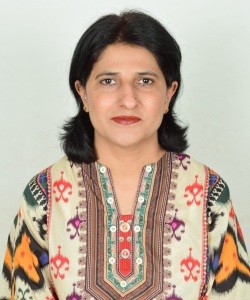Dr Shazia Anwer Cheema
Monitoring Desk: Using the same arrogant posture, Indian Minister for External Affairs Subrahmanyam Jaishankar is appearing in European media, giving them sermons that Europe has been soft on Pakistan, teaching them what democracy means, and what should be the role of Europe (EU) towards “Indian democracy”.
His Diplomatic Bag offers old oversold rhetoric that Pakistan is (allegedly) involved in terrorism in Illegally Indian Occupied Jammu and Kashmir (IIOJK), and the same old mantra that Pakistan is (allegedly) run by the military establishment. One commentator on a European television while discussing Jaishankar’s visit of Europe said that his pointers are too old rather redundant for European media sphere because in last 10 years, the EU Parliament addressed the Kashmir issue in several resolutions, often expressing concern over human rights abuses and advocating for a peaceful resolution through dialogue under the guidelines of United Nations (UNSC resolutions). She was not the one who referred Kashmir issue; rather, many more on EU television screens maintained that the EU has been demanding independent investigations into alleged human rights violations in IIOJK, the implementation of UN Security Council resolutions, and the inclusion of human rights clauses in EU trade agreements with India. They also referred that the Indian government over the last 10 years has not allowed independent EU media and EU politicians to visit IIOJK.
EU resolutions frequently highlight concerns about human rights abuses in IIOJK including the use of force by security forces, use of rape as subjugation tool, the detention of political prisoners, restriction of internet access and restriction on the access to Indian Kashmir.
It may be noted that the EU has suggested that any trade agreements with India should include a human rights clause to ensure that human rights concerns are addressed.
One of the strongest EU resolutions includes Resolution# B9‑0101/2019 vide dated September 18, 2019, moved by EU MPs Richard Corbett and Anthea McIntyre.
The text of the Resolution includes:
- whereas India has:
– unilaterally changed the constitutional status of the part of Kashmir under its control and also split Ladakh from Kashmir;
– sent an extra 35,000 troops there, arrested local politicians, and restricted communications;
– rejected the report of the UNHCR on Kashmir;
- whereas Security Council resolutions requiring a referendum of all Kashmiris to determine its status have never been implemented;
- whereas trade negotiations are underway between the EU and India;
Demands:
- Condemns the unilateral changes made to the status of Kashmir by India;
- Calls for the EU and Member States to promote the implementation of Security Council resolutions on Kashmir;
- Asks both sides to implement the recommendations of the UNHCR report;
- Considers that any EU trade agreement with India should include a human rights clause;
- Calls on the Council to adopt travel sanctions against Indian army officers involved in atrocities in Kashmir;
- Asks both sides to consider the enormous human, economic, and political benefits of resolving this conflict;
- Asks India to reflect on the huge cost of its military deployment in Kashmir and the blemish to its reputation caused by the deteriorating human rights situation.
There are several such strong-worded resolutions passed by the EU Parliament in the last 10 years, and Jaishankar is trying to sell his version of a story that is contrary to facts. He has been a career diplomat before joining to extremist RSS-BJP government, and he knows that a Resolution cannot reach the Floor of the House of the EU Parliament unless it goes through rigorous, multi-tier scrutiny, checking the justification of the discussion over the Resolution.
The same media that Jaishankar is addressing covers EU Parliament briefings and proceedings, but was also denied the opportunity to visit IIOJK. Yes, there is a hitch. Jaishankar had never served mainland Europe, and his assignments in Europe were in Moscow (during the Soviet Union), Budapest, and the Czech Republic.
I do not want to mock him, but I can surely feel that he does not know the currents and undercurrents of European Foreign Affairs in a multipolar world that is going through the Ukraine-Russia conflict. He joined the Indian Foreign Service (IFS) in 1977, the era when a mediocre diplomat having no educational track from European or North American universities could attract foreign media. In today’s European media, almost every third or fourth journalist covering foreign affairs as part of the Diplomatic Corps is qualified within the sphere of International Affairs, at least at bachelor’s or Master’s degree level. European media is no longer a generalist media, and selling the “Hindustan Ambassador” car in the “Tesla Market” market is nearly impossible for him. This is one of the reasons Jaishankar is refraining from open media engagements and only appearing in an “already fixed atmosphere”.
Moreover, European media are more interested in what happened during May 6-10 because European-made Rafale fighter jets are under discussion, and Jaishankar is surely avoiding this conversation. I can assure readers nobody will take him seriously in European capitals unless he shares what happened to French-made Rafale fighter jets during the Indo-Pak kinetic engagements.
 Note: The writer is a Foreign Affairs expert and a Doctor of Philosophy in Semiotics and Philosophy of Communication from Charles University, Prague. She can be reached at shaziaanwer@yahoo.com
Note: The writer is a Foreign Affairs expert and a Doctor of Philosophy in Semiotics and Philosophy of Communication from Charles University, Prague. She can be reached at shaziaanwer@yahoo.com
